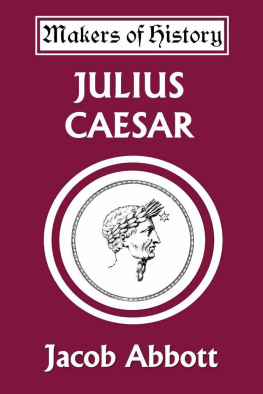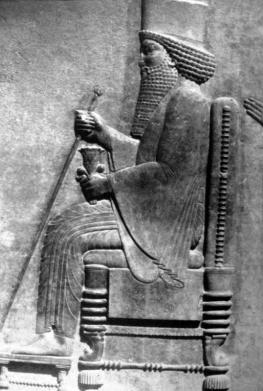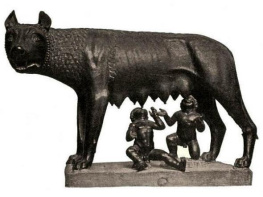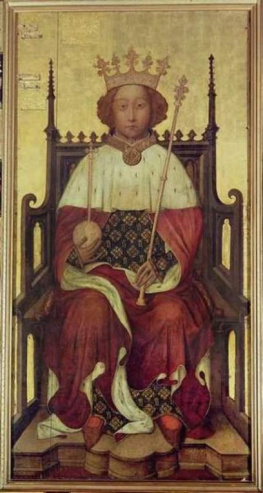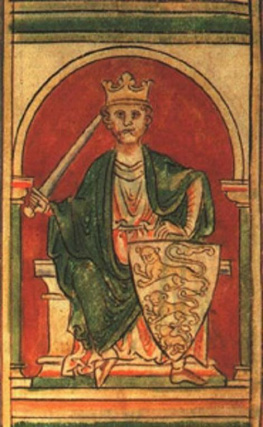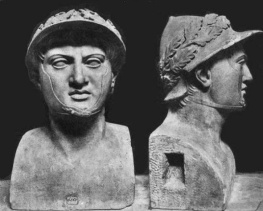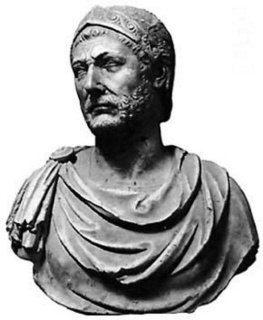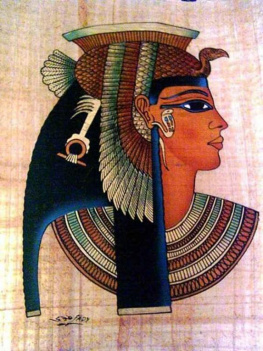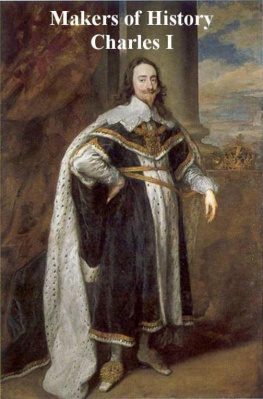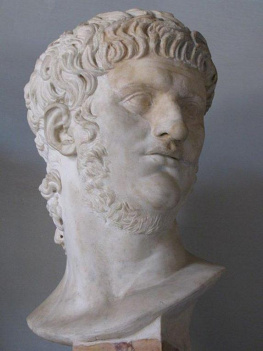I. OLYMPIAS AND ANTIPATER
B.C. 336-321
Situation of the country of Epirus.Epirus and Macedon.Their political connections.Olympias.Her visits to Epirus.Philip.Olympias as a wife.She makes many difficulties.Alexander takes part with his mother in her quarrel.Olympias is suspected of having murdered her husband.Alexander's treatment of his mother.His kind and considerate behavior.Antipater.Character of Antipater.Alexander's opinion of him.Olympias makes a great deal of trouble.Alexander sends Craterus home.Alexander's wife Roxana.Her babe.Aridus.The two competing claimants to the crown.Some account of the Ptolemaic dynasty.The distribution of Alexander's empire.Compromise between the rival claims.Question of marriage.Cleopatra.Nica.Nica is sent to Babylon.Antipater's plan.Another matrimonial question.Cynane.Excitement in the army.Ada's new name.Various intrigues.Schemes of Antipater and Ptolemy.Nica.Perdiccas' plans.A battle.Craterus is killed.Discontent.Unpopularity of Perdiccas.Transit of the Nile.Extraordinary incident.Great numbers swept into the river and destroyed.The kings are to be sent back to Babylon.Antipater returns to Macedon full of honors.
PYRRHUS, King of Epirus, entered at the very beginning of his life upon the extraordinary series of romantic adventures which so strikingly marked his career. He became an exile and a fugitive from his father's house when he was only two years old, having been suddenly borne away at that period by the attendants of the household, to avoid a most imminent personal danger that threatened him. The circumstances which gave occasion for this extraordinary ereption were as follows:
The country of Epirus, as will be seen by the accompanying map, was situated on the eastern shore of the Adriatic Sea, and on the southwestern confines of Macedonia. The kingdom of Epirus was thus very near to, and in some respects dependent upon, the kingdom of Macedon. In fact, the public affairs of the two countries, through the personal relations and connections which subsisted from time to time between the royal families that reigned over them respectively, were often intimately intermingled, so that there could scarcely be any important war, or even any great civil dissension in Macedon, which did not sooner or later draw the king or the people of Epirus to take part in the dispute, either on one side or on the other. And as it sometimes happened that in these questions of Macedonian politics the king and the people of Epirus took opposite sides, the affairs of the great kingdom were often the means of bringing into the smaller one an infinite degree of trouble and confusion.
The period of Pyrrhus's career was immediately subsequent to that of Alexander the Great, the birth of Pyrrhus having taken place about four years after the death of Alexander. At this time it happened that the relations which subsisted between the royal families of the two kingdoms were very intimate. This intimacy arose from an extremely important intermarriage which had taken place between the two families in the preceding generationnamely, the marriage of Philip of Macedon with Olympias, the daughter of a king of Epirus. Philip and Olympias were the father and mother of Alexander the Great. Of course, during the whole period of the great conqueror's history, the people of Epirus, as well as those of Macedon, felt a special interest in his career. They considered him as a descendant of their own royal line, as well as of that of Macedon, and so, very naturally, appropriated to themselves some portion of the glory which he acquired. Olympias, too, who sometimes, after her marriage with Philip, resided at Epirus, and sometimes at Macedon, maintained an intimate and close connection, both with her own and with Philip's family; and thus, through various results of her agency, as well as through the fame of Alexander's exploits, the governments of the two countries were continually commingled.
It must not, however, by any means be supposed that the relations which were established through the influence of Olympias, between the courts of Epirus and of Macedon, were always of a friendly character. They were, in fact, often the very reverse. Olympias was a woman of a very passionate and ungovernable temper, and of a very determined will; and as Philip was himself as impetuous and as resolute as she, the domestic life of this distinguished pair was a constant succession of storms. At the commencement of her married life, Olympias was, of course, generally successful in accomplishing her purposes. Among other measures, she induced Philip to establish her brother upon the throne of Epirus, in the place of another prince who was more directly in the line of succession. As, however, the true heir did not, on this account, relinquish his claims, two parties were formed in the country, adhering respectively to the two branches of the family that claimed the throne, and a division ensued, which, in the end, involved the kingdom of Epirus in protracted civil wars. While, therefore, Olympias continued to hold an influence over her husband's mind, she exercised it in such a way as to open sources of serious calamity and trouble for her own native land.
After a time, however, she lost this influence entirely. Her disputes with Philip ended at length in a bitter and implacable quarrel. Philip married another woman, named Cleopatra, partly, indeed, as a measure of political alliance, and partly as an act of hostility and hatred against Olympias, whom he accused of the most disgraceful crimes. Olympias went home to Epirus in a rage, and sought refuge in the court of her brother.
Alexander, her son, was left behind at Macedon at this separation between his father and mother. He was then about nineteen years of age. He took part with his mother in the contest. It is true, he remained for a time at the court of Philip after his mother's departure, but his mind was in a very irritable and sullen mood; and at length, on the occasion of a great public festival, an angry conversation between Alexander and Philip occurred, growing out of some allusions which were made to Olympias by some of the guests, in the course of which Alexander openly denounced and defied the king, and then abruptly left the court, and went off to Epirus to join his mother. Of course the attention of the people of Epirus was strongly attracted to this quarrel, and they took sides, some with Philip, and some with Olympias and Alexander.
Not very long after this, Philip was assassinated in the most mysterious and extraordinary manner.[B] Olympias was generally accused of having been the instigator of this deed. There was no positive evidence of her guilt; nor, on the other hand, had there ever been in her character and conduct any such indications of the presence of even the ordinary sentiments of justice and humanity in her heart as could form a presumption of her innocence. In a word, she was such a woman that it was more easy and natural, as it seemed, for mankind to believe her guilty than innocent; and she has accordingly been very generally condemned, though on very slender evidence, as accessory to the crime.
[Footnote B: For a full account of this transaction, see "History of Alexander the Great."]
Of course, the death of Philip, whether Olympias was the procurer of it or not, was of the greatest conceivable advantage to her in respect to its effect upon her position, and upon the promotion of her ambitious schemes. The way was at once opened again for her return to Macedon. Alexander, her son, succeeded immediately to the throne. He was very young, and would submit, as she supposed, very readily to the influence of his mother. This proved, in fact, in some sense to be true. Alexander, whatever may have been his faults in other respects, was a very dutiful son. He treated his mother, as long as he lived, with the utmost consideration and respect, while yet he would not in any sense subject himself to her authority and influence in his political career. He formed his own plans, and executed them in his own way; and if there was ever at any time any dispute or disagreement between him and Olympias in respect to his measures, she soon learned that he was not to be controlled in these things, and gave up the struggle. Nor was this a very extraordinary result; for we often see that a refractory woman, who can not by any process be made to submit to her husband, is easily and completely managed by a son.






